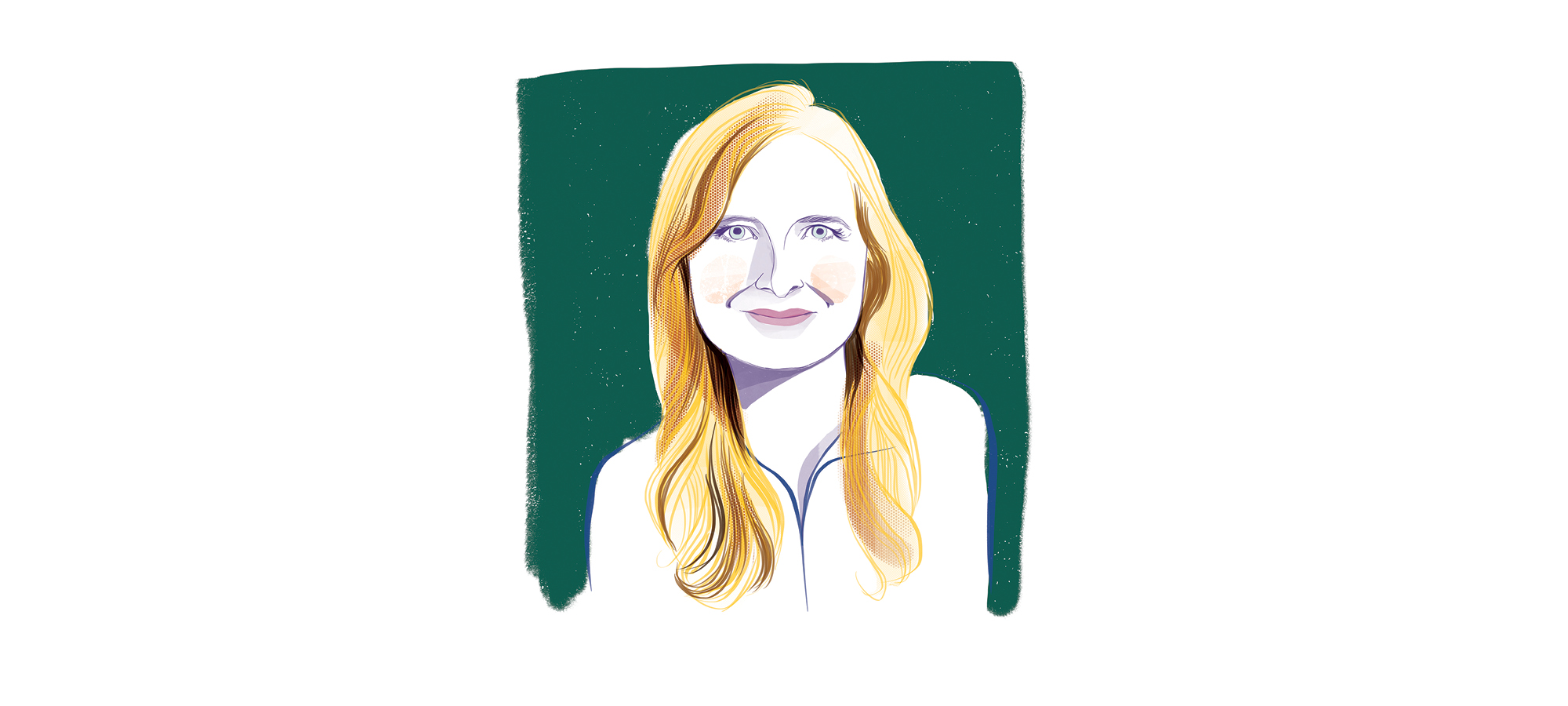
(Illustration by John Jay Cabuay)
In the podcast Moonrise, Lillian Cunningham, ABʼ06, explores the surprising origins of the space race.
When she began work on the podcast Moonrise, Lillian Cunningham, AB’06, knew she wanted to tell a different kind of story about the Apollo program.
Much of what she’d read explored how the United States got to the moon. Cunningham wanted to understand why. The result is a sprawling 12-part story about the eccentrics, geniuses, and dreamers who made the moon a national goal. Cunningham compares it to “a Russian novel with a million characters to keep track of.”
Telling familiar American stories in surprising new ways is Cunningham’s specialty as a reporter and podcaster for the Washington Post. Her 2016 podcast Presidential was a week-by-week frolic through the life of each US president. Cunningham also hosted the 2017 podcast Constitutional, about the people who created and recreated the nation’s founding document. Her comments have been edited and condensed.
What are some myths about the Apollo program?
One of them is where the story starts. A classic starting point is Sputnik—the Soviet Union launched a satellite and this made the United States wake up and realize, “We’re in a space race.” If you listen to the podcast, Sputnik comes about halfway through. There are so many interesting seeds of the dream of going to the moon that happen long before Sputnik.
Another was John F. Kennedy being the most important president involved in the moon decision. Of course he is majorly important, but it was interesting and surprising to me the great extent to which Lyndon Johnson was the real political driver of that goal.
Not to discredit Kennedy, but it’s worth thinking about the ways that we attach things to presidents. It’s an easy, convenient shorthand but ends up creating a mythology that doesn’t necessarily reflect who was more responsible for that achievement.
You focus on how science fiction shaped the space program. Why is that important?
It was following a chain of questioning: Why did Kennedy say we should go to the moon? Because Johnson told him we should. Why did Johnson say it? Because someone at NASA convinced him. Well, why did someone at NASA think that we should do this?
Following that thread inevitably led back to dreamers. Before we can have a policy goal, someone has to dream up the idea, and then it needs to move into the public consciousness.
That’s how I found my way back to the science fiction writers and editors who planted the wild idea of going to the moon in the public imagination.
You started in print journalism. What’s different about audio?
When you write a print piece you have to do a lot of work to make sure people get what you mean. In audio, a lot of that can be done with your intonation. If you want people to really let a line sink in, you just say it slowly and then leave a pause. You can force someone to not glaze over something, just by controlling the rhythm. You can be in some ways more sparse in your script, because you can bring all of that through in your tone.
How did UChicago influence your career?
Without it being a conscious effort of mine, I’ve crafted this career that lets me continue to be a student and get paid for it. I feel very lucky that I get to do these projects that require research, writing, and critical inquiry. They’re stories that we’re all expected to know as citizens, but that we all would benefit from taking a more critical eye to studying.
How did you decide on studying English?
I had a million thoughts about my concentration. I had too many interests, and I couldn’t make a commitment to any one of them. I was so indecisive that in my dorm we actually had a bracket going, where people voted on what my concentration should be. The bracket finally came down to anthropology and literature. I went with anthropology and then after a little bit decided it should be literature.
